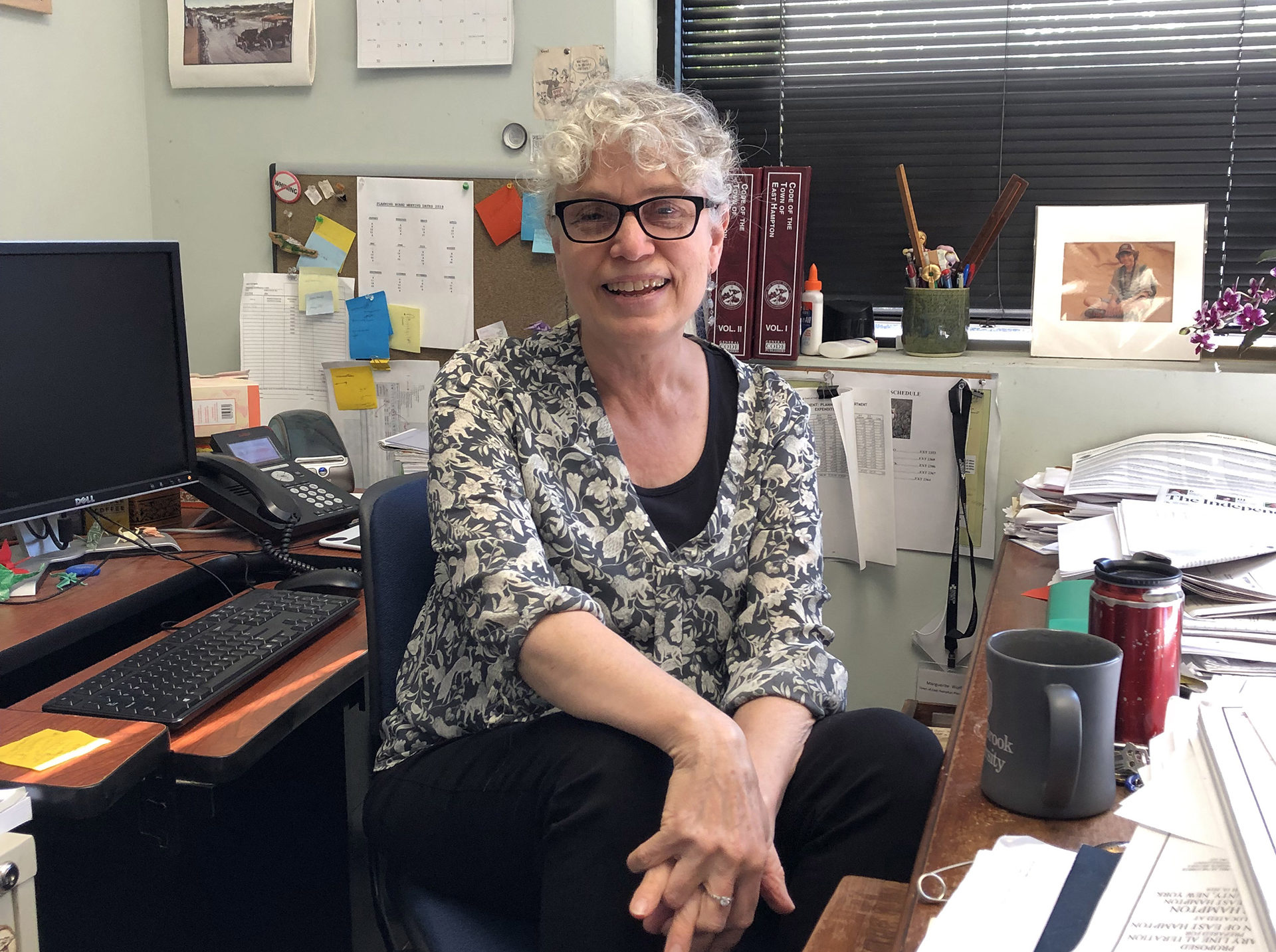Top East Hampton Town Planner To Retire

Marguerite Wolffsohn, who has headed the East Hampton Town Planning Department since May 2003, and worked for the town for an additional 16 years, will be retiring at the end of July.
Her immediate plans? “To do nothing. But, nobody believes me,” she said, laughing. Lisa Liquori was the town’s planning director and Judith Hope was the supervisor at the time Wolffsohn was hired.
Her education was in ecology. She is a graduate of the SUNY College of Environmental Science and Forestry, where she majored in wildlife and minored in botany before moving to C.W. Post, where she earned her master’s degree in ecology. How did she end up in East Hampton? “I answered the ad,” she said.
Planning and planners can have different backgrounds. While Wolffsohn’s education was in ecology, some of her fellow planners now working for the town, like JoAnne Pahwul and Eric Schantz, are certified by the American Institute of Certified Planners.
“East Hampton has an environmental mindset,” Wolffsohn said. Her education in the field of ecology was very helpful in her role in the Planning Department. “Ecology is how the environment works, how everything fits together,” she explained.
A Belize native who grew up in Levittown, Wolffsohn had to make an immediate move when she was hired in 1987 because it was a requirement at the time for all employees to live in town.
She first went to work for the town’s Zoning Board of Appeals, then after a year, moved over to advise on applications before the town’s planning board.
East Hampton Town was quite different at the time. While the planning board now deals mostly in site-plan reviews, back in the late ’80s and early ’90s, there were a large amount of subdivisions across the town being proposed.
Wolffsohn recalled some of the major subdivisions from that era, that ended up, instead, becoming parkland. “Hither Woods. That was a proposal to divide land that is parkland now. Barcelona was going to be divided. And Shadmoor,” she said. Shadmoor, in Montauk, had many points that would qualify it for parkland, as opposed to development, such as the presence of endangered species, wetlands, and historic structures.
The acquisitions by the town or county or state of large swaths of land, preserving them forever as open space, is one of the most satisfying memories from Wolffsohn’s 32-year career with the town.
As she was talking in her office on Pantigo Road, Pahwul stopped by to drop off some papers. Pahwul joined the department one year after Wolffsohn. She talked about how much the department is going to miss its director. The two reminisced about their first years with the Planning Department.
“We were down on Bluff Road in this little space where our desks hit each other, our chairs were back to back,” Pahwul said. “There were five of us in there. There were large windows. We would open the windows and the ocean breezes blew through. We all had big rocks on our desks to hold down the stacks of papers.”
Wolffsohn said they had an ocean view, and could walk to the beach for lunch. That ended in about 1990, when the department was moved to its current space on Pantigo Place, behind Town Hall. But, now they do have Goldberg’s Bagels just yards away.
The key to planning is to look toward the future, Wolffsohn explained. A planner might recommend, for example, acquisition of a site proposed for subdivision. At the same time, however, the planner must give the relevant board possible mitigation if it moves forward with a plan.
The most important thing a planner can do is to work with members of the public, Wolffsohn said, whether it is about a zoning variance, or a subdivision.
While the town board engages in the search for a candidate to replace Wolffsohn, it is her hope that the board elevates someone to her soon-to-be former post from within. Three East Hampton Town planners recently took the Civil Service test that would qualify them for such a promotion: Pahwul, Schantz, and Brian Frank. Then the department could make a new hire at the entry level for the department.
Even as she is leaving the department, she is thinking about its future.
One thing that will change at the end of July for Wolffsohn: She will start reading local newspapers again. “It was too much like work,” she said about reading the papers. Soon, that will be someone else’s job.
t.e@indyeastend.com



